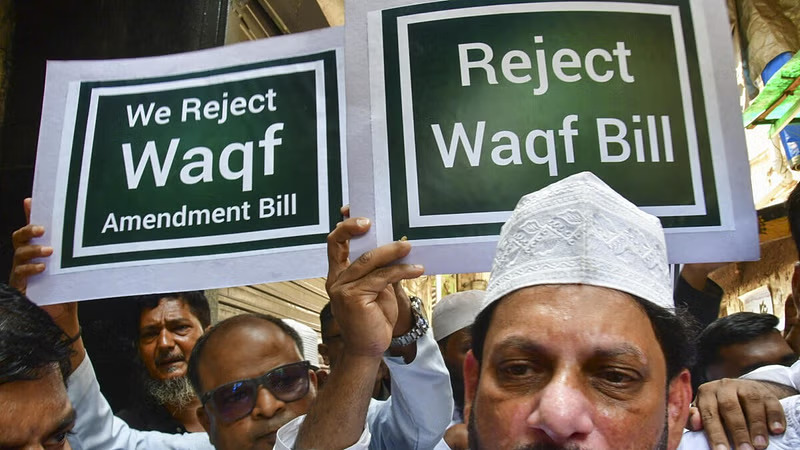Claim: The Waqf (Amendment) Bill, 2024 abolishes Waqf Boards and takes control of Waqf properties across India.
Fact Check: Partly True
What’s the Context?
The Waqf (Amendment) Bill, 2024, introduced by BJP MP Dinesh Pratap Singh, aims to bring sweeping changes to the governance of Waqf properties in India. The Bill was introduced in the Rajya Sabha on April 5, 2024, and has sparked debates over religious rights, property ownership, and transparency in the functioning of Waqf Boards.
What Is Waqf?
“Waqf” refers to a permanent dedication of property for religious, charitable, or pious purposes under Islamic law. The Central Waqf Council and various State Waqf Boards are responsible for managing and overseeing these properties in India.
India has over 6 lakh Waqf properties, including mosques, graveyards, schools, shops, and agricultural land.
What Does the Bill Propose?
The Waqf (Amendment) Bill, 2024 proposes significant changes:
- Abolition of Waqf Boards:
The Bill proposes dissolving both the Central and State Waqf Boards, replacing them with a new system that will be more “transparent” and “accountable” to the Union government. - Audit and Inventory of Waqf Properties:
A complete re-survey and digitization of all Waqf properties across India will be conducted, with government oversight. - Restriction on New Waqf Declarations:
No individual or organization will be allowed to declare a property as Waqf without prior government approval. - Public Use Clause:
Waqf properties must be used strictly for public and religious purposes and not for commercial exploitation or private gain.
Why Is It Controversial?
Critics argue that the Bill could:
- Weaken minority rights and infringe on religious freedoms, especially of the Muslim community.
- Lead to the centralization of power and state interference in religious property.
- Result in confiscation or misuse of valuable Waqf lands under the guise of transparency and reform.
Supporters say it aims to:
- End corruption and misuse of Waqf properties.
- Ensure proper record-keeping, auditing, and public access to Waqf data.
- Prevent illegal encroachments and politicization of Waqf Boards.
Has It Become Law Yet?
No. As of now, the Bill has only been introduced in the Rajya Sabha. It has not been passed by both Houses of Parliament. It may be referred to a Select Committee for further debate and public consultation.
Conclusion
The Waqf (Amendment) Bill, 2024 does not yet abolish Waqf Boards, but it does propose major structural reforms that could significantly alter how Waqf properties are governed in India. The claim that it already removes all Waqf Boards is partly true, depending on whether the Bill is passed in its current form.

